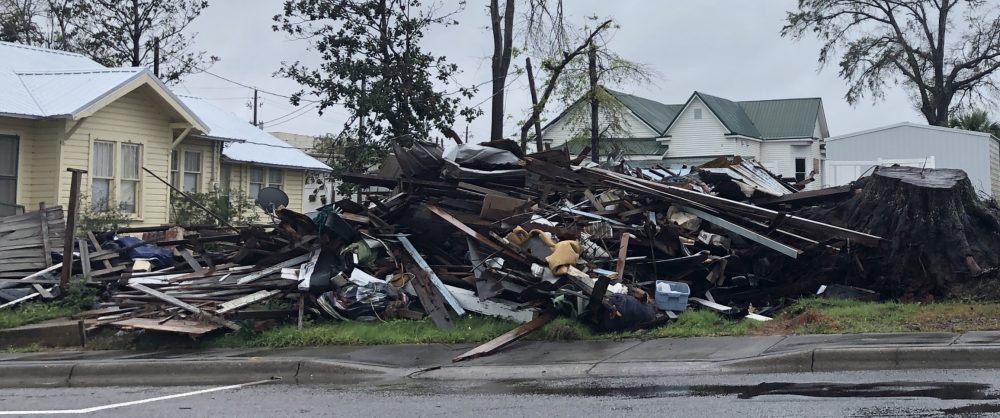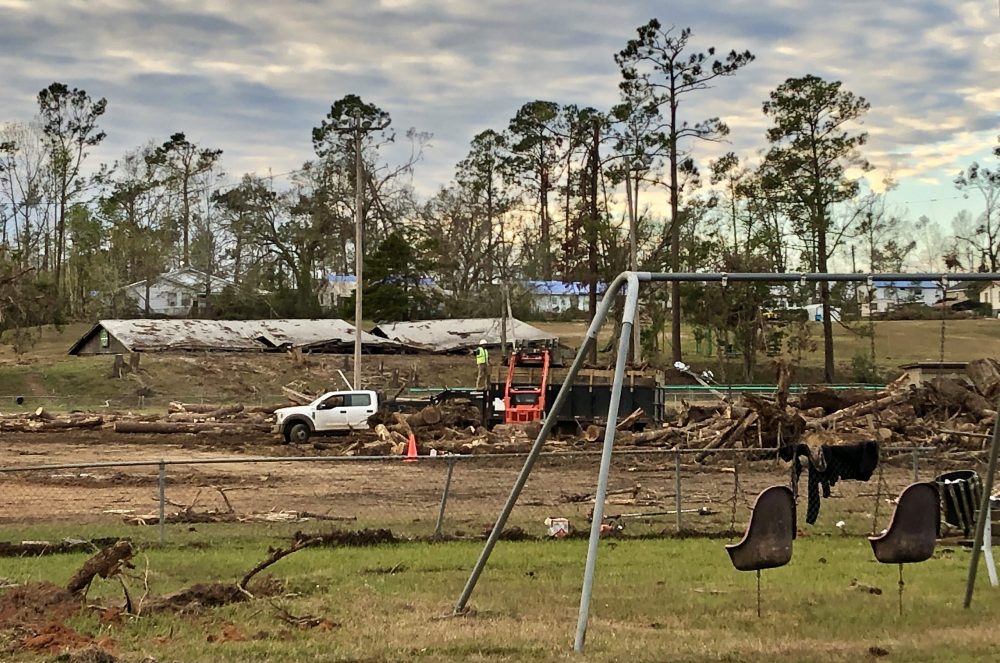Disaster Philanthropy Playbook

Disaster Leadership Team
The worst disasters often strike places that have not dealt with them before. When community leaders suddenly find themselves having to deal with the aftermath of a disaster, it can be hard to know who to turn to for guidance and advice.
Thankfully, the Disaster Leadership Team (DLT) is there to support those who may be dealing with their first major emergency.
Building and nurturing long-term recovery groups
Founded in 2016, DLT strives to speed up a community’s recovery from a natural disaster by providing direct mentorship for local community leaders. After a disaster, the DLT deploys a couple of their volunteers to work with local leaders, followed by a second deployment a few weeks later. In between deployments, and for as long as needed afterward, DLT volunteers stay in regular contact through phone calls.
DLT’s team of volunteers assists existing, new or developing long-term recovery groups (LTRGs) by providing information, guidance, mentorship, support and connections to resources. Each team member has experienced a disaster and helped lead recovery in their own community.
Building local disaster response and recovery leaders
DLT works to support local leaders as they create an LTRG. These groups are intended to help guide communities in making informed and considered decisions about priorities during recovery and how to fund the recovery of the community. To date, DLT has supported the establishment of 23 long-term recovery groups.
The success of DLT’s approach is evident in the transformation of mentees into mentors. Their volunteers are often invited to return for significant celebrations or commemorations of the disaster.
Donors play a vital role in ensuring that DLT has the resources to do its work. “Grants allow us to get in and build relationships and trust that provide the basis for long-term community-centered and community-focused support,” said DLT Executive Director Carlene Anders, “CDP [Center for Disaster Philanthropy] has been an integral part of allowing people to do what they need to do to recover.”

Funding capacity and space for shared learning
In 2018, CDP provided a $50,000 grant to support DLT’s work in Texas after Hurricane Harvey. This allowed DLT to support communities through in-person meetings, video conference calls, PowerPoint presentations and webinars. Webinar subjects included long-term recovery formation, rebuilds, post-disaster policies and enabling LTRGs to remain sustainable and to respond to future disasters.
A portion of this grant was used to bring 16 LTRGs from across Texas to share information and advice with each other from their experiences.
In 2019, CDP provided DLT a second grant, this one for $20,000, to support their work after Hurricane Michael in Florida. With this grant, DLT convened a two-day event that brought together LTRGs in Florida in a similar manner as they did in Texas.
This event focused on sharing information and encouragement for both existing LTRGs and those that were in the process of forming after Hurricane Michael.
By providing advice and encouragement to people in the places where they are, DLT can support local capacity building and create a network of experienced LTRG recovery leaders. Many of the DLT’s existing mentors were once mentees who now share their hard-earned experience with leaders who are new to disasters and recovery. CDP’s support has allowed the DLT to reach more LTRGs by bringing them together for shared learning.